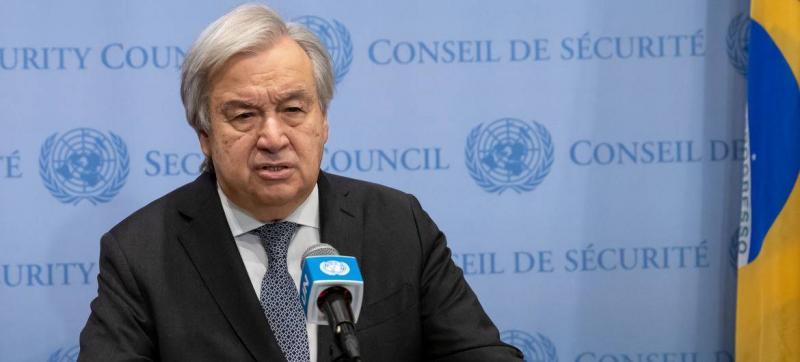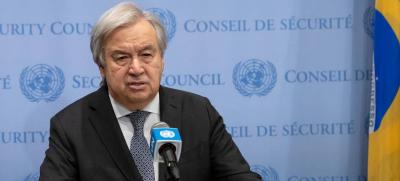The observations made by United Nations Secretary-General António Guterres in his semi-annual report to the Security Council yesterday regarding the implementation of Resolution 1559 (2004) highlighted concerns about the lack of progress in executing its provisions. He expressed continuing encouragement for relevant Lebanese parties to reinvigorate efforts to engage in an inclusive national dialogue to address outstanding issues.
He pointed out that the increasing exchange of fire across the Blue Line during the reporting period between Hezbollah and other Lebanese and non-Lebanese militias and the Israeli Defense Forces raises serious concerns. The retention of Hezbollah's large and advanced military capabilities outside the control of the Lebanese government and their use remains a source of significant worry. He noted that calls from various segments of the Lebanese population for the full implementation of Resolution 1559 and their rejection of the possession of weapons outside state authority indicate that Hezbollah's arms are still a divisive issue within Lebanese society.
He stated, "I continue to urge the government and army of Lebanon to take all necessary measures to prevent Hezbollah and other groups from acquiring weapons and building paramilitary capabilities outside state authority in violation of Resolutions 1559 and 1701." Guterres also considered Hezbollah's ongoing involvement in the conflict in Syria not only a violation of the policy of disassociation and the principles of the Baabda Declaration of 2012 but also a risk of dragging Lebanon into regional conflicts and undermining stability in Lebanon and the region.
He strongly condemned all violations of Lebanon’s sovereignty and territorial integrity and deemed the strikes by the Israeli Defense Forces in Lebanese territory as undermining security and increasing tensions. Furthermore, he pointed out the crisis of presidential vacancy, stating that addressing the multifaceted crisis in the country can only occur through the election of a president, the formation of a fully empowered government, and the implementation of comprehensive reforms. He called on Lebanese leaders to prioritize national interest and collaborate to overcome the protracted political impasse for the benefit of all sects and people in Lebanon.
He urged Lebanese lawmakers to fulfill their constitutional duty to elect a new president without further delay in a free and fair presidential election, in accordance with the established Lebanese constitutional rules, free from foreign interference or influence, in line with Resolution 1559.




